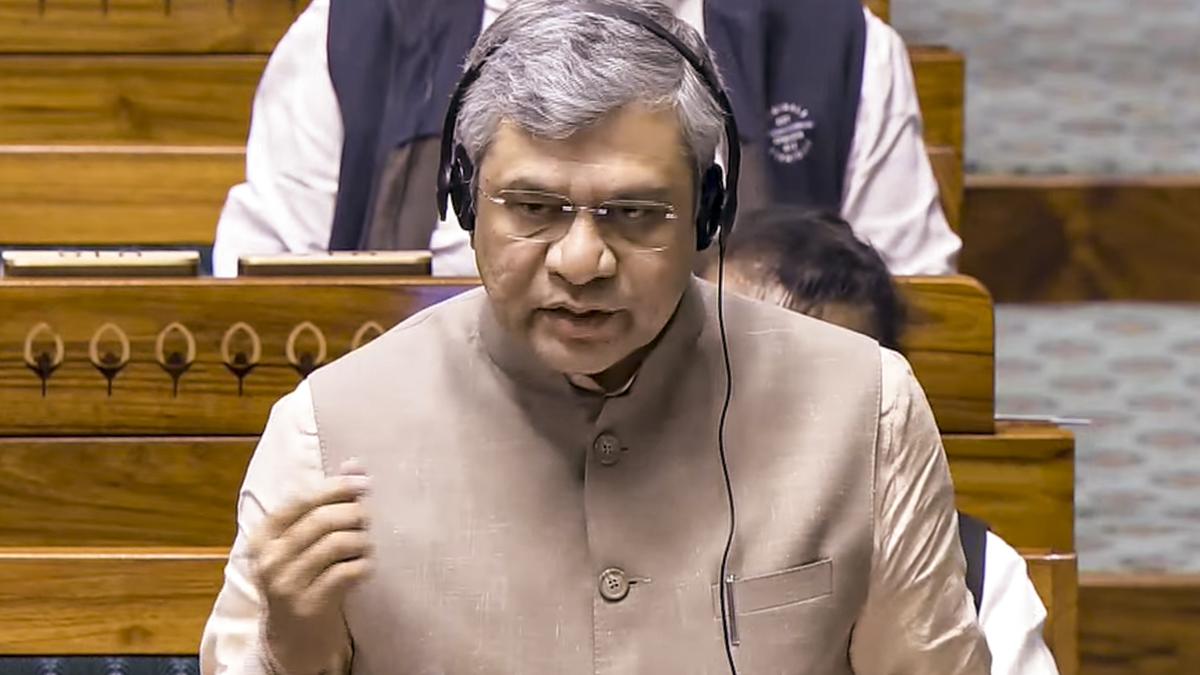 |
|
The recent passing of the Railways (Amendment) Bill, 2024, in the Lok Sabha marks a significant development in the Indian railway system. Passed amidst disruptions on December 11, 2024, five months after its introduction, the Bill aims to streamline the legal framework governing Indian Railways. For decades, the operation of the Indian Railways has been governed by a patchwork of legislation, primarily the colonial-era Indian Railway Board Act, 1905, and the Railways Act, 1989. This amendment seeks to consolidate these into a single, more cohesive legal framework, thus reducing ambiguity and streamlining processes. The need for such a reform has been long acknowledged, with the complexity of referring to two distinct sets of laws often creating administrative hurdles and inefficiencies. The integration aims to create a more modern and efficient legal structure for the Indian Railways, paving the way for smoother operation and faster decision-making.
A key feature of the amendment is the provision of statutory backing to the Railway Board. Since its inception, the Railway Board has operated without explicit statutory sanction, an anomaly corrected by this amendment. This lack of formal legal backing has impacted the board’s independence and ability to effectively manage the vast network. The amendment grants the Central government the authority to define the composition of the Railway Board, including the number of members, their qualifications, their terms of service, and ultimately their level of independence. By formalizing the board’s structure and powers, the amendment intends to enhance its operational efficiency and provide increased accountability.
Beyond the restructuring of the Railway Board, the Bill introduces provisions designed to improve operational efficiencies and decentralize powers within the Indian Railways. A crucial aspect of this decentralization is granting greater autonomy to individual Railway Zones. This long-standing demand, supported by various committees including the 2014 Sreedharan Committee, recognizes that a more decentralized approach could enhance responsiveness to regional needs and improve overall operational flexibility. Increased autonomy for the zones could lead to better decision-making at the local level, optimizing resource allocation and improving service delivery to various regions of the country. This approach is expected to improve the efficiency of the railway system as a whole, leading to improved service and reduced bureaucratic bottlenecks.
Furthermore, the Bill proposes the establishment of an independent regulator for the railway system. This independent body will oversee crucial areas such as tariffs, safety regulations, and the growing participation of the private sector in railway operations. The recommendation for such a regulator was previously made by the Committee on Restructuring Railways in 2015. The creation of this independent regulator aims to promote transparency, accountability, and fair competition, while also ensuring the safety and efficient functioning of the railway network. This will help bring greater oversight and expertise to vital aspects of the railway system, safeguarding the interests of both the government and the public.
The amendment is also anticipated to significantly accelerate the approval process for new train services, thereby addressing the backlog of pending demands from different parts of the country. This streamlined approval process will be crucial in expanding the reach of the railway network and catering to the growing transportation needs of the nation. Specific examples cited include faster implementation of infrastructure projects and the speedy introduction of superfast train operations, such as extending the Arunachal Express through Bihar. This reflects the government's focus on regional development and the fulfillment of long-standing demands for improved connectivity in under-served areas. The ability to quickly approve and implement such projects will have a significant positive impact on economic development and regional connectivity.
The historical context of the amendment is also important. The initial establishment of the railway network in India was as a branch of the Public Works Department, a reflection of the colonial administrative structure. The expansion of the railway network eventually led to the enactment of the Indian Railways Act, 1890, to manage the growing complexity of the system. Later, the railway organization was separated from the Public Works Department, resulting in the enactment of the Railway Board Act, 1905. Subsequently, the Railways Act, 1989, repealed the 1890 Act, aiming for a more contemporary legal framework. However, the absence of statutory sanction for the Railway Board created a legal anomaly, which the current amendment seeks to rectify. The current Bill, therefore, represents a long-overdue consolidation and modernization of the legal framework governing Indian Railways, addressing long-standing issues and laying the groundwork for a more efficient and responsive railway system for the future.
The passing of the Railways (Amendment) Bill marks a significant step towards modernizing the Indian railway system, addressing decades-old legal ambiguities, and empowering the Railway Board and individual zones. The streamlined legal framework, the establishment of an independent regulator, and the enhanced autonomy granted to railway zones are all expected to contribute to a more efficient, transparent, and responsive railway network capable of meeting the growing transportation demands of India. The focus on decentralization, speedier project approvals, and improved regulatory oversight promises to bring substantial improvements in railway operations and regional development. The long-term impact of this amendment will be closely watched as the Indian Railways continues to play a pivotal role in the country's economic growth and social development.
Source: Amid disruptions, Railways (Amendment) Bill passed in the Lok Sabha
